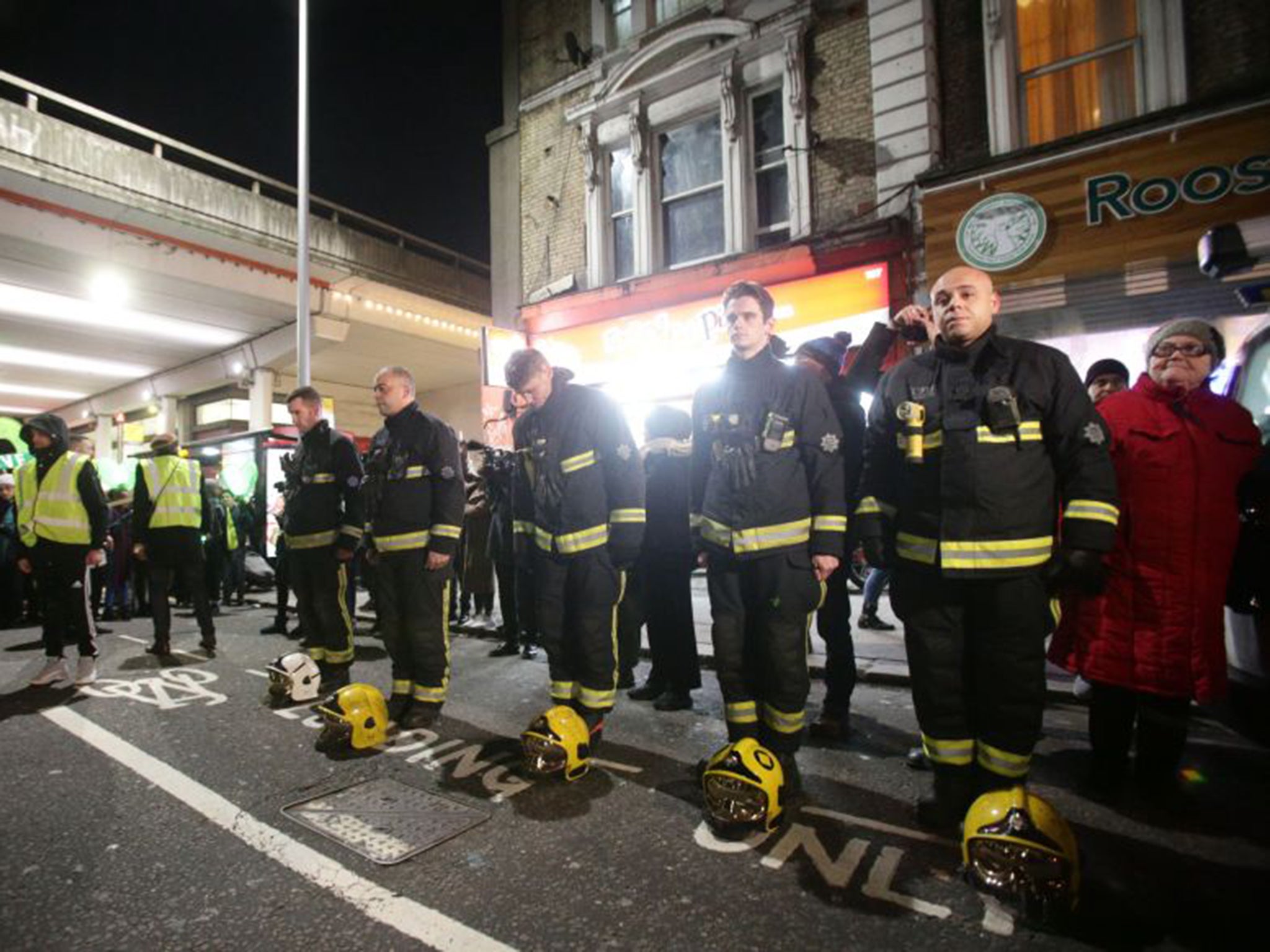Publishing the Grenfell report is not enough – we need deeds not words when it comes to fire safety
The Fire and Rescue Service has seen cuts of 11,000 staff since 2010 while local authorities are on the path to absolute ruin. Why isn't the Government doing anything to address this?

There’s nothing sexy about fire safety legislation but there is a bigger picture at stake in Dame Judith Hackitt’s inquiry into building regulations, released today. It might not be front page material, but the report’s findings should strike at the heart of an agenda that has guided governments since Thatcher. One that has put public safety at risk.
Dame Hackitt has been tasked with reporting on the fire safety regulations in the wake of Grenfell. The Government is asking what went wrong. Yet there’s good grounds to suggest they already knew.
In 2009 six residents (including a twenty month old baby) died in a blaze at a tower block in South London. A coroner's inquest into the fire called for building regulations to be improved, as did fire industry experts. But the Government acted dumb. Then finally in October 2016 the then Housing Minister, Gavin Barwell, promised a review of the law – but it never materialised. That’s why Hackitt’s interim report is welcome, but it needn’t have been too late for the residents of Grenfell.

So why did they drag their feet? Because quite simply, governments since Thatcher have all boasted of anti-regulatory agenda, the much celebrated bonfire of “red tape”. Against this narrative the death of six working class people in 2009 barely left a mark. Yet, especially in the wake of a financial crisis, Grenfell couldn’t be ignored.
Hackitt’s interim report makes clear the weakness of the current regulations; “not fit for purpose”, as she puts it. Unfortunately I’m not surprised. In 2014 Barwell's predecessor, Brandon Lewis, rejected calls to force construction companies to fit sprinklers in new builds saying:
“We have introduced the one in, two out rule for regulation … Under that rule, when the Government introduce a regulation, we will identify two existing ones to be removed."
This “one in two out”, anti-regulatory approach resulted in a failure of the legislation to keep apace with new building practices and new materials. For that reason Dame Hackitt's call for a cultural shift is long overdue.
Likewise I welcome the concern raised in the report over the competency to enforce regulations. And here we shouldn't shy away from considering the impact of the privatisation of fire safety inspectors under a Labour government led by Tony Blair.
The creation of so called approved inspectors in 2005 has, as elsewhere in the public sector, driven down quality. The competition of private inspectors forces lower costs and leaves less money and lower incentives for inspectors to invest in up to date training.
Not only that, but the system of competing private inspectors has led to a conflict of interest between pleasing the business interests of a client and the proper enforcement of public safety standards.
It’s a system built to fail. That’s why Hackitt is right to call for a greater role for the Fire and Rescue Service in this area. When the goal is public safety the best means are public delivery.
But even with the writing on the wall, we all know that deeds, not words, save lives. That's why Hackitt’s enquiry needs to be backed up by resources. The Fire and Rescue Service has seen cuts of 11,000 staff since 2010 while local authorities are on the path to absolute ruin.
Indicative of this government's hands-off approach is Sajid Javid’s promise of funding for fire safety upgrades in tower blocks after Grenfell. But local authorities such as Nottingham discovered this doesn’t include funding for sprinklers, despite being proven to save both lives and property.
Deregulation, privatisation and cuts. These are the three watchwords of a neoliberal agenda, pioneered by Thatcher and continued through to Grenfell.
Under Jeremy Corbyn, Labour will finally begin the task of turning this country round. Rebuilding a country with dignity, freedom and public safety at its core.
As a start we've called on the Chancellor to provide £1bn to fund the retrofitting of sprinklers. If the Tories are incapable of putting the money where their mouth is then it will be left for a Labour government to enact when we're in power. The sooner, the better.
Chris Williamson is MP for Derby North and Shadow Minister for fire and emergency services.
Join our commenting forum
Join thought-provoking conversations, follow other Independent readers and see their replies
Comments
Bookmark popover
Removed from bookmarks